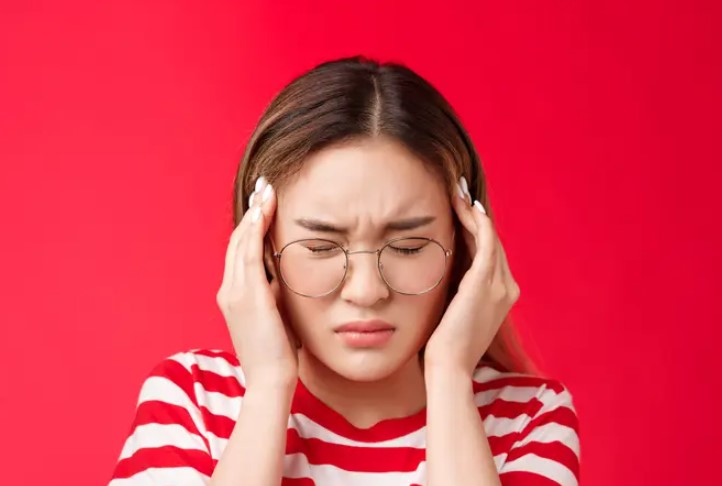Understanding Anemia: Symptoms, Causes, and Treatments

Introduction
Anemia is a common but often misunderstood condition that affects millions of people worldwide. It occurs when your blood lacks enough healthy red blood cells or hemoglobin, leading to a variety of health issues. Understanding anemia is crucial for managing its symptoms and improving your overall health.
What is Anemia?
Anemia, in medical terms, is a condition where your body doesn’t have enough red blood cells or hemoglobin. Hemoglobin is the protein in red blood cells that carries oxygen throughout your body. When these cells are deficient, your body doesn’t get the oxygen it needs, causing you to feel tired and weak.
Types of Anemia
Anemia is not a one-size-fits-all condition. There are several types, each with its causes and treatments:
Iron-Deficiency Anemia
This is the most common type and occurs when your body lacks enough iron to produce hemoglobin.
Vitamin-Deficiency Anemia
Lack of vitamin B12 and folate can lead to this type of anemia, as these vitamins are crucial for red blood cell production.
Anemia of Chronic Disease
Chronic illnesses like cancer or HIV/AIDS can interfere with the production of red blood cells.
Hemolytic Anemia
This type occurs when red blood cells are destroyed faster than they can be made.
Sickle Cell Anemia
A genetic condition where red blood cells are misshapen, leading to a shortage of healthy cells.
Aplastic Anemia
A rare but serious condition where the body stops producing enough new blood cells.
Common Symptoms of Anemia
Recognizing the symptoms of anemia is the first step toward diagnosis and treatment:
Fatigue and Weakness
Feeling unusually tired and weak is a common sign.
Pale or Yellowish Skin
Your skin may look pale or yellow due to the lack of red blood cells.
Shortness of Breath
You might find it hard to catch your breath during simple activities.
Dizziness or Lightheadedness
Anemia can make you feel dizzy or lightheaded, especially when standing up quickly.
Chest Pain and Heart Palpitations
In severe cases, you might experience chest pain or irregular heartbeats.
Causes of Anemia
Anemia can result from a variety of causes, including:
Nutritional Deficiencies
Lack of iron, vitamin B12, or folate in your diet can lead to anemia.
Chronic Diseases
Conditions like cancer, HIV/AIDS, and kidney disease can affect red blood cell production.
Genetic Factors
Some types of anemia, like sickle cell anemia, are inherited.
Autoimmune Disorders
Diseases like lupus can cause your body to attack its red blood cells.
Blood Loss
Heavy periods, surgery, or injury can lead to significant blood loss and anemia.
Risk Factors for Developing Anemia
Certain factors can increase your risk of developing anemia:
Age and Gender
Women of childbearing age and older adults are more at risk.
Dietary Habits
A diet lacking in essential nutrients can lead to anemia.
Chronic Conditions
Having a chronic disease increases your risk.
Family History
A family history of anemia can make you more susceptible.
Diagnosing Anemia
To diagnose anemia, doctors may use several methods:
Physical Examination
A thorough check-up to look for physical signs of anemia.
Blood Tests
These tests measure your red blood cell count and hemoglobin levels.
Bone Marrow Tests
In some cases, a bone marrow biopsy may be needed.
Additional Diagnostic Procedures
Other tests might be necessary to identify underlying causes.
Treating Anemia
Treatment depends on the type and cause of anemia:
Dietary Changes
Eating foods rich in iron, vitamin B12, and folate can help.
Iron Supplements
These are often prescribed to boost iron levels.
Vitamin Supplements
Supplements for vitamin B12 or folate may be necessary.
Medications for Underlying Conditions
Treating the root cause can alleviate anemia.
Blood Transfusions
In severe cases, a blood transfusion might be required.
Bone Marrow Transplants
This treatment is for severe types of anemia like aplastic anemia.
Preventing Anemia
Prevention is always better than cure:
Balanced Diet
Ensure your diet includes enough iron, vitamins, and minerals.
Regular Check-Ups
Regular medical check-ups can catch anemia early.
Managing Chronic Conditions
Keep chronic diseases under control to prevent anemia.
Awareness and Education
Understanding anemia can help you take proactive steps.
Living with Anemia
Living with anemia requires adjustments:
Coping Strategies
Learn to manage symptoms and maintain your quality of life.
Support Systems
Seek support from family, friends, and support groups.
Long-Term Management
Follow your doctor’s advice for managing anemia over the long term.
Complications Associated with Anemia
If left untreated, anemia can lead to serious complications:
Heart Problems
Anemia can cause heart-related issues due to lack of oxygen.
Pregnancy Complications
Pregnant women with anemia risk complications like preterm delivery.
Growth Issues in Children
Children with anemia might experience growth and developmental delays.
Severe Fatigue and Weakness
Extreme fatigue can impact your daily life significantly.
Anemia in Specific Populations
Different groups are affected by anemia in unique ways:
Anemia in Women
Women, especially those of childbearing age, are at higher risk.
Anemia in Children
Children require sufficient nutrients for growth, making them vulnerable to anemia.
Anemia in the Elderly
Older adults often have chronic conditions that increase their risk.
Anemia in Athletes
Athletes might develop anemia due to rigorous physical activity and dietary needs.
Myths and Misconceptions about Anemia
There are many myths about anemia:
Common Myths
Myths like “anemia is just fatigue” need debunking.
Clarifying Misconceptions
Understanding the facts helps in managing and preventing anemia.
Recent Research and Advances in Anemia
Ongoing research is crucial:
New Treatments
Innovative treatments are being developed.
Ongoing Studies
Researchers are continually studying anemia to find better solutions.
Future Directions
The future looks promising with potential new treatments on the horizon.
Conclusion
Anemia is a complex condition with various types, causes, and treatments. Understanding it is the first step to managing it effectively. If you suspect you have anemia, seek medical advice promptly. With proper management, you can lead a healthy, fulfilling life despite the condition.
FAQs
What are the most common causes of anemia? The most common causes are nutritional deficiencies, chronic diseases, and blood loss.
Can anemia be cured completely? Some types of anemia can be cured with proper treatment, while others require long-term management.
How is anemia different from general fatigue? Anemia is a medical condition caused by a lack of red blood cells or hemoglobin, while fatigue can be due to various other reasons.
Are there any natural remedies for anemia? Eating a balanced diet rich in iron, vitamin B12, and folate can help, but always consult your doctor for advice.
What should I eat if I have anemia? Include iron-rich foods like spinach, red meat, and legumes, along with vitamin C to enhance iron absorption.






